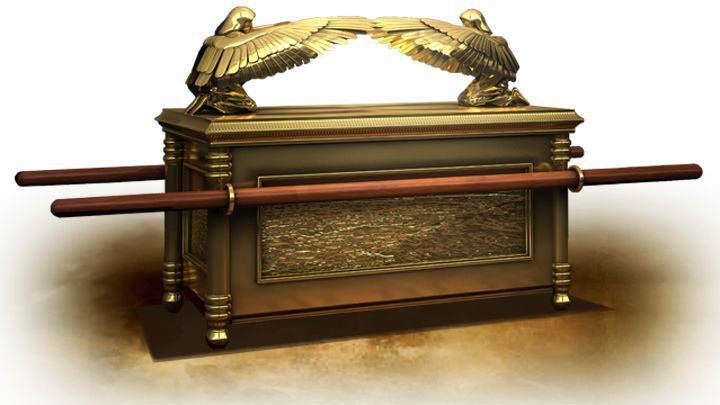Extraordinary Ordinary - Part 4
June 19, 2022Today's message was given by Geof Morin, CEO of Biblica. A video of the message is here. "God makes the ordinary extraordinary." Today's focus was the story of Zacchaeus. Click here for the Conversation Starter for the week that TimberCreek Church provided.
The tangent I'm taking today connects at Geof's mention of the "Mercy Seat," a part of the Tabernacle, the portable sanctuary, if you will, that the Israelites built in the desert to carry the Ten Commandments and to be their center for ritual, holidays, etc. See Exodus 25.

It's interesting to note that scholars wonder if the Israelites could even have built something like this given the instructions in the text. It's even been likened to a Creation story.
Right off the bat it gets interesting. God instructs Moses to have the Israelites "take from yourselves" a gift to build the Tabernacle. This is a rare "give from the heart" moment, whatever you feel like giving. More normal is for the amount to be specified. Tithing is fixed and charity is fixed. But this is "from the heart." In ritual, which is what this is ultimately about, your intensions do matter. If YOU are not affected, it's pointless; it's not for God. This is how the new Israelites got close to God.
The portability of the Tabernacle indicates God is not in any one place. God is anywhere you focus on Him. God does not live in the Tabernacle, the Tabernacle is for you. Where is God? Wherever you let Him in.
There are seven substances: metals, dyes, fabrics, timber, oil, spices, and gems. Some of these were exceedingly rare and therefor very expensive, like the indigo dye.
One of the key tachings of the Tabernacle construction is that holiness guards ethics. The Ten COmmandments lie at the center and are protected by the box, the cover guards the box, the cherubim guard the cover, etc. Holiness and goodness are fragile; they need to be protected.
Everett Fox points out the juxtaposition of a mighty God thundering from the maountain at Sinai to the intimate God of a small, portable Tabernacle.
The Tabernacle is directly connected with Yom Kippur, the Day of Atonement. The sacrifices surrounding the Tabernacle were about atoning for ones sins. The word kippur and the word kapporet (cover, lid) come from the same root. So it's a day for "covering one's sins," as it were. The value of a way to atone for sins these days is often overlooked.
It's interesting that in Exodus 25:9, God says to Moses, "Exactly as I show you pattern, you shall make." It's a pattern, not exact dimensions. Hint: they don't work out exactly right.
Bonus
The first recorded transracial adoption may well have been the Pharoah's daughter's adoption of Moses. His bio-mom nursed him, but when weaned, he went back to Pharoah's daughter who then named him Moses. The Biblical text uses a Hebrew name Moses which means "drew him out" (of the water). But Pharoah's daughter would not have spoken Hebrew?! There is also an Egytpian name Moses which means "to be born." Exodus 2:9-10. Parents did not typically name a child until after it was weaned due to the high infant mortality rate, so that real bonding would not occur until it was a safer bet that the child would live. This is the last we hear of Moses' childhood.